Mexico’s first serial killer is a female wannabe wrestler
Mexico loves it abuelas.
So, in 1998, when a rash of killings seemed to be targeting Mexico City’s elderly women, many of whom were grannies, residents were up in arms.
The mysterious murderer was a shadowy figure who came to be known as the Old Lady Killer. In the end, the executioner — a wrestling fanatic with broad shoulders and powerful hands — was not who anyone imagined.
“Grandmothers are the most fragile, most vulnerable members of society,” Laura Waldenberg, producer of “The Lady of Silence: The Mataviejitas Murders,” which drops Thursday on Netflix, told The Post. “When grandmothers started being killed, society was deeply affected. The murders generated much more outrage than other killings in the country.”
(Indeed, nearly 14,000 known murders were committed in Mexico in 1998.)
As outlined in “The Lady of Silence,” the anger was intensified by the fact that these murders were the product of Mexico’s first confirmed serial killer. The women were all strangled to death, their apartments ransacked, and valuables and keepsakes stolen.
Politicians and the media pressed the police to find the killer and put a stop to these brutal misdeeds. Grandchildren lived in fear for the lives of their abuelas and cop cars cruised the streets with composite drawings of the suspect — a woman — affixed to their windows.
A woman on the street, interviewed for local news at the time, summed things up for grandmas throughout Mexico City when she told a reporter, “I’m scared of everyone.”
Under intense pressure, the police arrested the wrong people. In one instance, an innocent nurse who resembled the composite illustration was yanked out of a bank and paraded by the cops. She was released soon after. Crossdressing prostitutes were rounded up and a male burglar was incorrectly incarcerated for the killings.
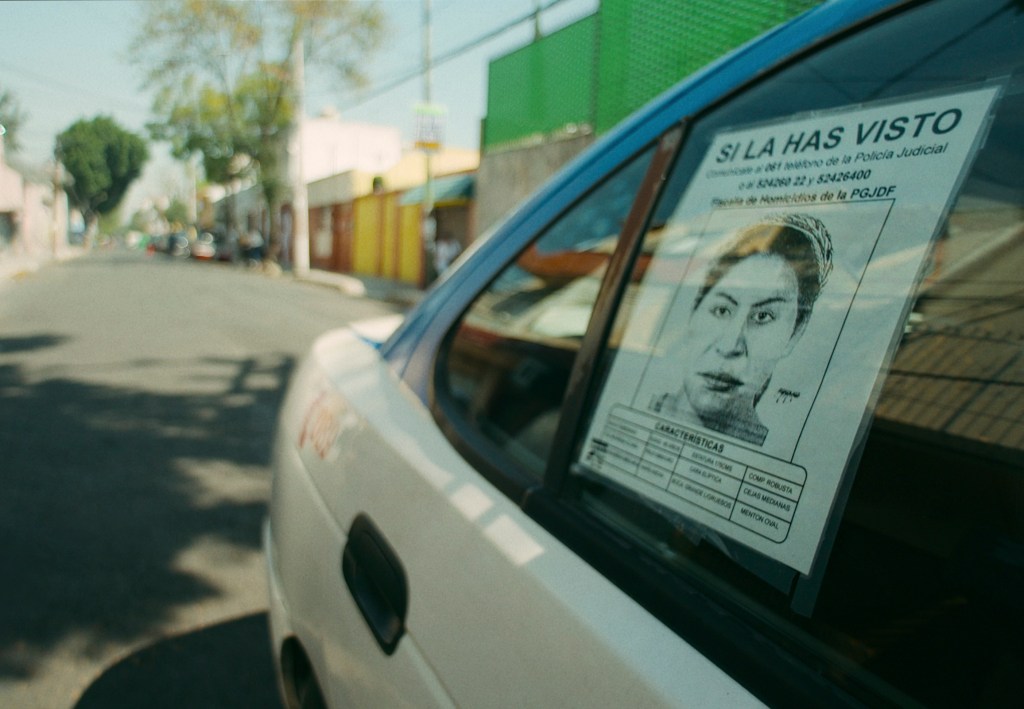
As time went on, and deaths piled up, law enforcers became convinced that the killer had to be a man. Judging by the nature of the strangulations, it seemed unlikely that a woman, with small hands, could do it.
In January 2006, with 47 women allegedly strangled by the Old Lady Killer, a man named Joel Lopez went to visit his elderly neighbor Ana Maria de los Reyes.
Surprised to see her door unlocked, he stepped inside — and encountered a woman in a red coat. She made eye contact before calmly exiting. The real shock came when Lopez ventured deeper into the apartment and saw Reyes laying on the floor of her bedroom, where drawers were open and belongings scattered. A stethoscope was wrapped around her neck. Reyes was dead.
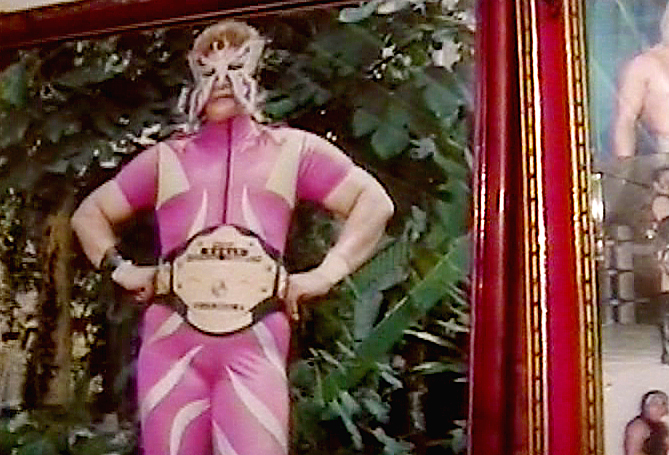
Outside, Lopez saw the woman in red just as a police car was passing by. The cops reportedly sensed Lopez’s distress, noticed the woman quicken her pace, and apprehended her before she disappeared into a metro station.
As the woman was pushed into the police car, Lopez angrily asked, “What did you do? What did you do to my neighbor?”
Among the items on her, a few were particularly unexpected: receipts for rentals of wrestling rings, business cards of various professional wrestlers, and a keychain with her own wrestling name: La Dama de Silencio (Lady of Silence).
Her real name was Juana Barraza, a 48-year-old single mother with a troubled past who led police to believe she was a professional wrestler.
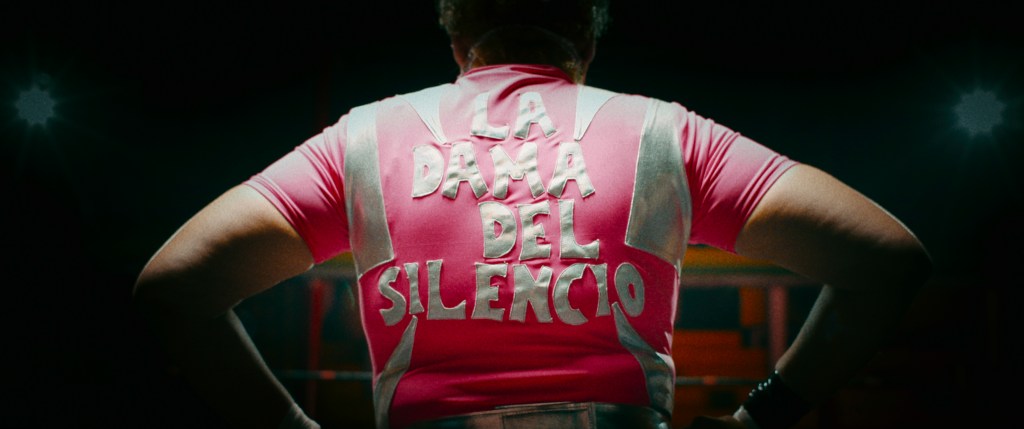
In reality, she was only a super fan of lucha libre, a Mexican form of wrestling in which competitors all wear masks. She socialized with wrestlers, loaned them money and, despite never competing in a pro match, according to Waldenberg, considered herself to be one of them.
Inside her cluttered home, a poster-sized photo of Barraza in wrestling garb had pride of place.
“Juana’s dream was to be a wrestler,” said Waldenberg. “She had a mask and costume and wanted to be part of the scene. She constructed the wrestling persona for the authorities and convinced them that it was real.”

The murderous Barazza put up a convincing front. “She wore a wrestling costume when meeting with [legit] wrestlers,” continued Waldenberg. “There is one investigator who said that the reason she turned to murder was because she missed the excitement of being a wrestler. That was ridiculous because Juana was obviously not really a wrestler.”
According to the Guardian, a criminologist working on the case provides a sadder and more rational explanation for the killings: Barraza harbored so much dislike for her mother that she killed old ladies.
Barraza claims that, when she was 12 years, old, her mother traded her away for “a carton of beer.”
At that point, she fell into a sexually abusive cycle with a much older man.
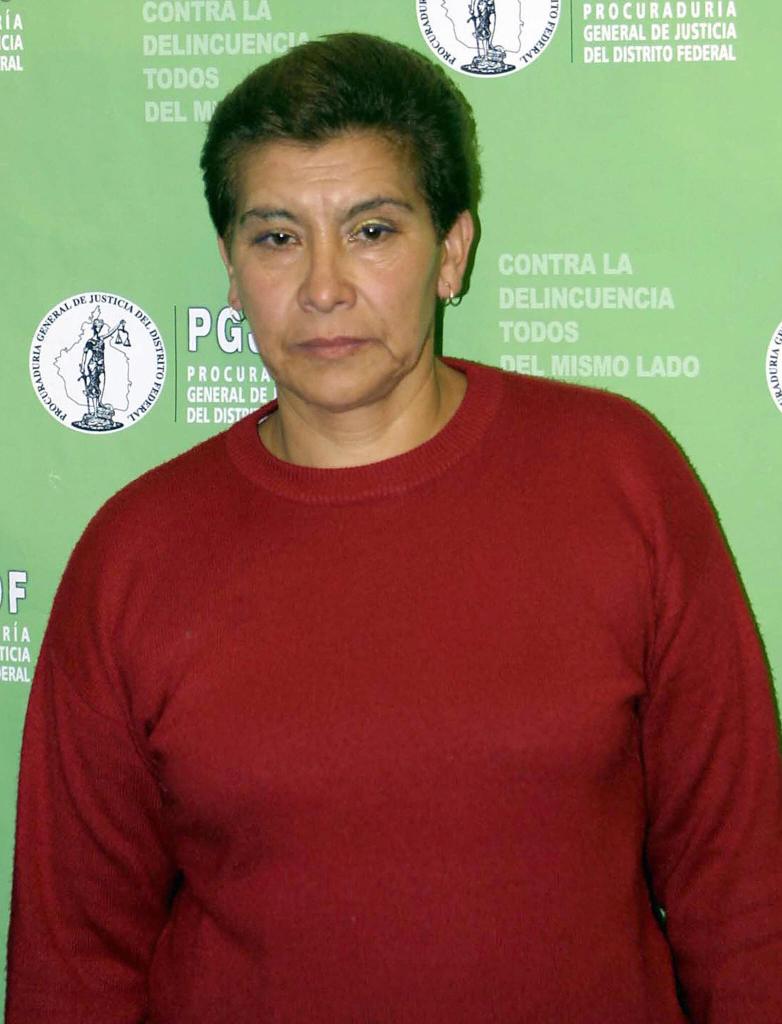
Functionally illiterate, Barraza became pregnant while still a teenager and gave birth to a son who was later murdered by bat-wielding muggers. She had three more children, though there is no record of her marital status. She is believed to have made ends meet through a combination of cleaning homes, selling random goods on the street, and thievery.
In contrast to her own upbringing, said Waldenberg, “She was very interested in showing that she is a good mother. She worked hard to cultivate that image.”
But it did not do much to generate sympathy for her once she was accused of murder. On film in the documentary, Barraza is seen enthusiastically demonstrating for law enforcers how she committed her strangulations — looking proud as she tightens a pair of stockings around the neck of a criminologist.
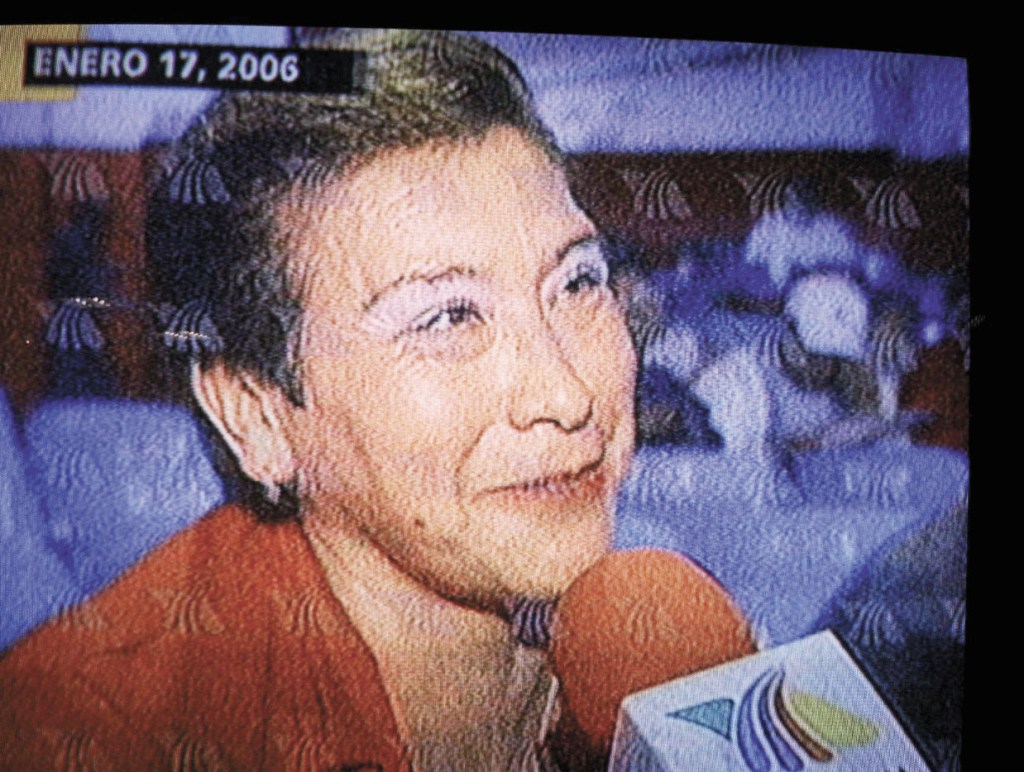
In 2008, a judge declared Barraza guilty of 17 murders and sentenced her to 759 years in prison.
According to Waldenberg, the Old Lady Killer has found acceptance behind bars in a way that she never did before her sentencing. Mexican pop star Amandititita recorded a campy song about her, T-shirts abound (one shows Barraza with devil horns in a fake wrestling poster that has her facing off against an angelic grandma) and there is at least one true-crime book about Barraza’s killing spree.
“People in the jail respect her a lot. One day a week, she sells food to the other inmates,” said Waldenberg. “She’s a pop icon inside the jail and on the outside.”
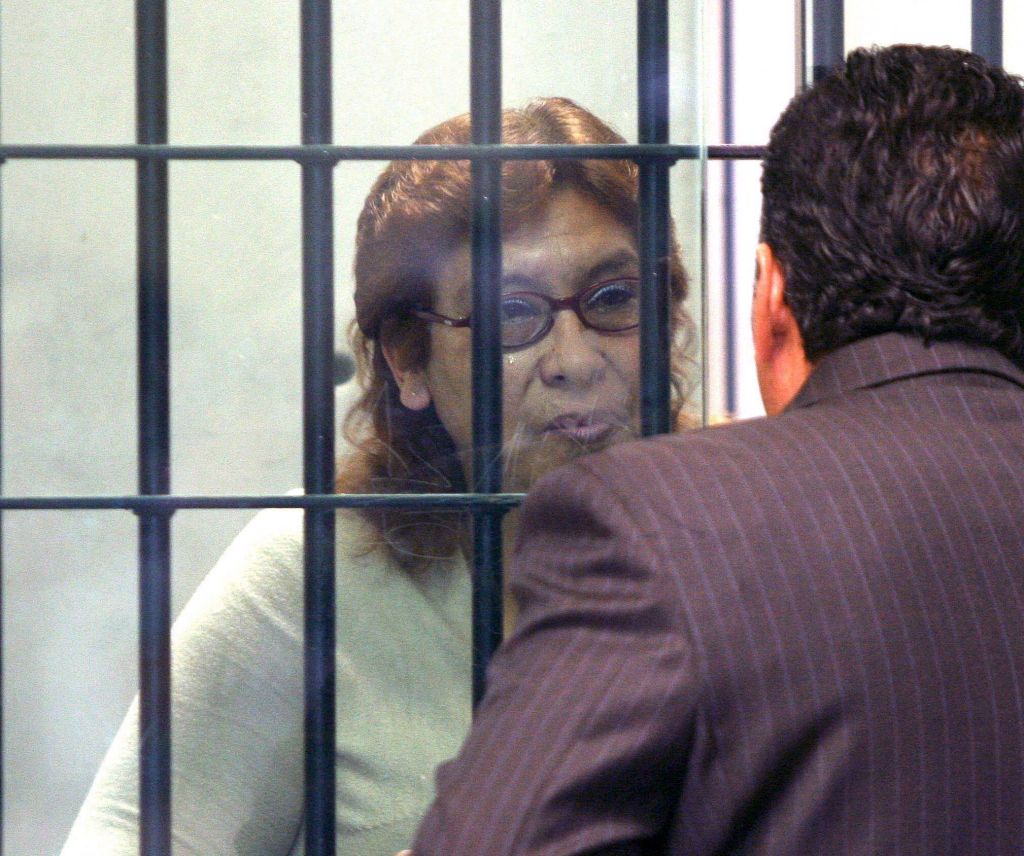
As for remorse and explanations, Barraza is not big on either. “I only killed one old lady,” she insisted to the court. “It is not right to pin the others on me.”
When asked for a motive, she simply replied, “I got angry.”
Read the full article Here


